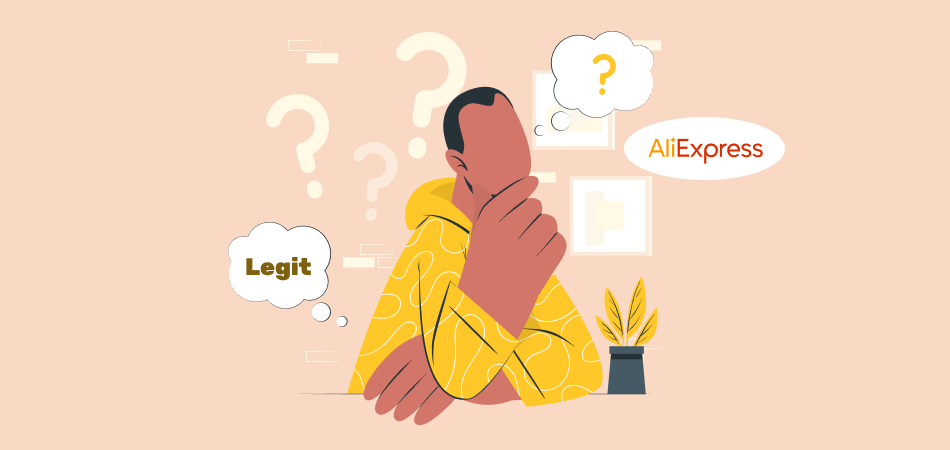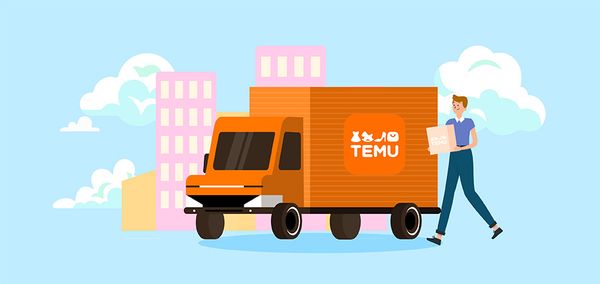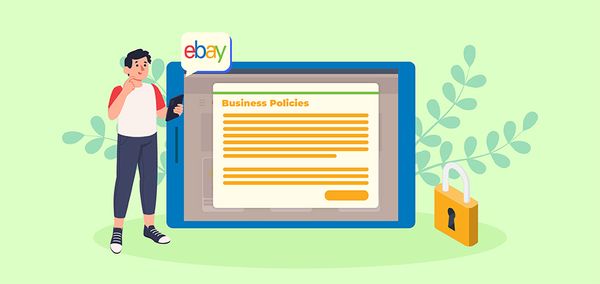Is AliExpress Legit? 6 Tips to Avoid Scams

AliExpress is a prominent online marketplace that connects buyers worldwide with sellers, primarily from China. Known for its vast selection of products at remarkably low prices, AliExpress has gained significant popularity. However, the sheer scale of the platform and the diversity of its sellers raise questions about its legitimacy and the potential for scams.
What Is AliExpress
AliExpress is an online retail platform owned by Alibaba Group, one of the world’s largest e-commerce companies. Launched in 2010, it serves as a marketplace where buyers from around the globe can connect with sellers, predominantly from China.
The platform offers a vast array of products, including electronics, fashion, home goods, and more, often at competitive prices. AliExpress operates similarly to other e-commerce sites, allowing users to browse products, read reviews, and make purchases directly from sellers.
It is known for its low prices, which can be attributed to its business model that connects buyers directly with manufacturers or wholesalers, bypassing traditional retail intermediaries. This direct-to-consumer approach helps reduce costs and allows sellers to offer products at lower prices. Additionally, many items are produced in regions with lower labor and material costs, further contributing to the affordability of products.

|
Manage Multiple Stores In One Account Multiple Stores Management - Link and manage multiple stores on different platforms in one place |
Why AliExpress So Cheap
AliExpress is known for its remarkably low prices, primarily because many sellers on the platform are manufacturers or wholesalers based in China. By selling products directly from the source, these sellers eliminate intermediaries such as distributors or retail chains, significantly reducing the costs involved in bringing products to market.
Another factor contributing to the low prices on AliExpress is the lower production costs in the regions where many of these products are made. In countries with reduced labor and material expenses, manufacturers can produce goods more affordably. This cost-saving is often passed on to the consumer, making products cheaper compared to those from markets with higher production costs.
The competitive environment of AliExpress also drives prices down. With numerous sellers offering similar products, competition encourages them to lower prices to attract buyers.This combination of factors results in the low-cost offerings that characterize AliExpress.
Is AliExpress Legit
AliExpress is a legitimate online marketplace owned by Alibaba Group, a leading global e-commerce company. It functions as a platform where buyers can connect with sellers, mostly based in China, to purchase a diverse range of products including electronics, fashion, and home goods.
Despite its legitimacy, the experience on AliExpress can vary depending on individual sellers. Since the platform includes numerous vendors, not all of them may meet high standards of quality or reliability. It’s essential for buyers to exercise caution by thoroughly reviewing seller ratings and reading customer feedback to gauge the trustworthiness of a seller.
To ensure a safe shopping experience, AliExpress offers Buyer Protection, which provides refunds if items don’t arrive or aren’t as described. Using secure payment methods and carefully scrutinizing product descriptions can further enhance your safety. By taking these precautions, you can navigate AliExpress effectively and minimize the risk of potential issues.
Types of Scam
Here’s a more detailed breakdown of various types of scams that can occur on AliExpress:
Counterfeit Products
Counterfeit scams involve sellers offering items that appear to be branded but are actually fakes or knock-offs. These products are often of inferior quality compared to genuine items.
Non-Delivery Scams
In non-delivery scams, buyers pay for products that never arrive. The scammer might provide a fake tracking number or falsely claim the item was lost during shipping.
Misleading Product Listings
Misleading listings involve sellers using inaccurate photos or descriptions that do not reflect the actual product. This can lead to buyers receiving items that differ in size, color, or features from what was advertised.
Price Manipulation
Price manipulation scams attract buyers with extremely low prices, only to increase the price significantly later or add hidden fees. This deceptive tactic can mislead buyers into paying more than expected. Be cautious of deals that seem too good to be true and ensure you understand the full cost before completing the purchase.
Phishing Scams
Phishing scams involve fraudulent websites or emails that mimic AliExpress to steal personal or financial information. These scams can trick users into providing sensitive details by appearing legitimate.
Fake Reviews
Fake reviews are posted by sellers or hired individuals to create a misleading positive image of their products. These reviews can falsely enhance the credibility of substandard items.
Drop Shipping Scams
Drop shipping scams occur when sellers do not hold inventory and instead purchase products from other sources after receiving orders. This can result in delayed shipping or lower-quality items.
Return and Refund Abuse
This scam involves sellers creating deceptive return and refund policies to avoid fulfilling their promises. Buyers might face difficulties in returning products or obtaining refunds.
Fake Shipping Information
Fake shipping information scams involve providing false tracking details or updates to mislead buyers about their order’s status. Buyers might receive tracking numbers that do not correspond to real shipments.
Hidden Charges
Hidden charges involve unexpected fees added after the purchase, such as extra shipping costs or customs duties. These fees are not disclosed upfront, leading to surprise costs for buyers.
6 Tips to Avoid Scams
To shop safely on AliExpress and avoid potential scams, it's crucial to follow some essential guidelines that protect you from fraudulent activities and ensure a smooth shopping experience.
Check Seller Ratings and Reviews
Before purchasing, carefully review the seller’s ratings and read customer feedback. High ratings and positive reviews from previous buyers typically indicate a reliable seller. Pay attention to the number of reviews and overall feedback, as a seller with many positive reviews is generally more trustworthy.
Be wary of sellers with few reviews or an unusually high number of negative comments. This step helps ensure that you are dealing with reputable sellers who have a history of delivering quality products and good service.
Verify Buyer Protection
Make sure that the product you’re buying is covered by AliExpress’s Buyer Protection. This feature is crucial as it offers refunds if the item doesn’t arrive or significantly differs from its description. Verify the protection details on the product page and ensure the seller participates in this program.
Buyer Protection can safeguard you against fraud and help resolve disputes. By confirming that you’re buying from a seller who adheres to AliExpress’s protection policies, you enhance your chances of a secure shopping experience.
Beware of Unrealistic Prices
Be cautious of deals that are too good to be true. Extremely low prices can be a red flag for counterfeit or low-quality products. While AliExpress often offers competitive prices, drastic discounts compared to market value may indicate potential issues with the product’s authenticity or quality.
Compare the prices of similar items on other platforms to assess whether the deal is reasonable. This precaution helps avoid purchasing items that do not meet your expectations or may not arrive as described.

|
Adapt Your Product Prices Automatically DSers Automatic Pricing - Pre-set Pricing Rule to mark-up your product price automatically |
Scrutinize Product Descriptions
Thoroughly read the product descriptions and specifications before making a purchase. Ensure that the details provided match your expectations and that the item is as described. Check for information on size, color, material, and any other relevant features. Incomplete or vague descriptions can be a warning sign.
Pay attention to images and any available customer reviews or questions related to the product to verify its accuracy. Detailed descriptions help prevent misunderstandings and ensure that you receive the product you intended to buy.
Communicate with the Seller
If you have any questions or concerns about a product, don’t hesitate to contact the seller directly. A reliable seller should respond promptly and provide clear answers to your inquiries. Use the messaging feature on AliExpress to ask about product details, shipping times, or any other issues before purchasing.
Effective communication with the seller can clarify doubts and ensure that you’re making an informed decision. It also provides an opportunity to gauge the seller’s responsiveness and willingness to assist.
Use Secure Payment Methods
Always use the secure payment options offered by AliExpress, such as credit cards or PayPal. Avoid making direct payments or using alternative methods not covered by AliExpress’s protection policies.
Secure payment methods help safeguard your financial information and provide recourse in case of disputes. By sticking to the platform’s recommended payment methods, you reduce the risk of encountering scams or fraudulent activities.
Conclusion
AliExpress is a legitimate and widely used platform, but being informed and cautious is essential to avoid potential scams. By following the tips provided, you can enhance your shopping experience, ensure the reliability of your purchases, and enjoy the benefits of the platform while minimizing risks.
Need more information about dropshipping? Explore DSers now!












 Company
Company
 Why Choose DSers
Why Choose DSers
 Blog
Blog
 Help Center
Help Center




 Live Chat
Live Chat